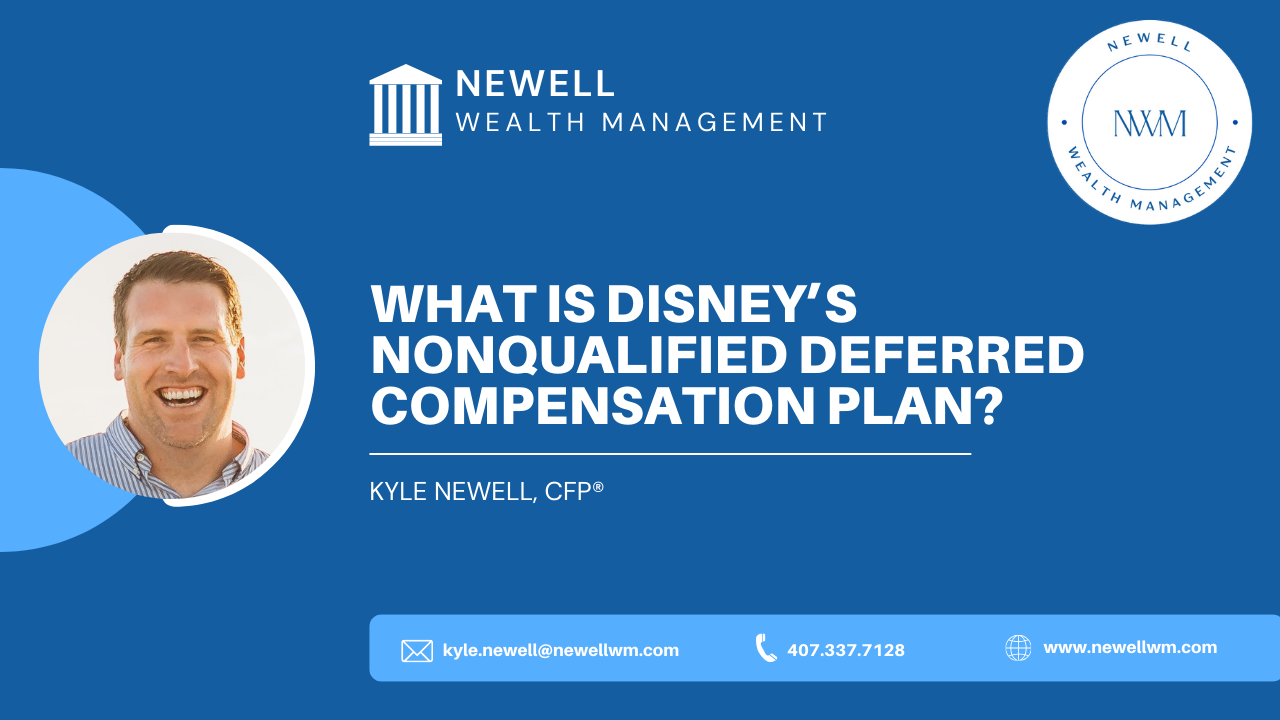What Is Disney’s Nonqualified Deferred Compensation Plan?

Disney offers what’s known as a nonqualified deferred compensation plan for executives, generally a senior vice president or higher. It’s always nice to make a higher income as you move up the ladder. The downside is the tax implications associated with making more money.
This is especially true if you work for the Walt Disney Company in states like California or New York. High income tax states like these can really bear down on those expenses.
The nonqualified deferred compensation plan is a form of retirement plan that allows one to save for the future. It’s a good idea to have a basic understanding of these plans to utilize them correctly. Here are four things everyone should know about nonqualified deferred compensation plans.

What is a Nonqualified Deferred Compensation Plan?
Plans like these are a way for a company to incentivize their high-income earners by being able to fund money into a plan that will defer taxes. If you have a high income and large bonuses, you may want to save the money rather than spend it.
In a high-income bracket, you’re limited on how much you can contribute to your 401k. The percentages you can contribute are relatively small once you reach the higher executive level.
Nonqualified deferred compensation plans were created as a way to put your income into a plan to save and defer taxes now. These plans help allow companies to continue paying their people well. At the same time, they come with lots of risks because these plans are built outside of IRS regulations.
What Are the Risks?
The primary draw of these plans is that you save taxes on the money in the year you stow it away. The savings can be significant depending on your tax bracket, especially if you’re in the 30% tax bracket.
Sounds great, but it’s essential to understand some of the risks involved when considering using a nonqualified deferred compensation plan to save money. These plans skirt around some of the IRS regulations regarding 401k and other retirement plans. For the plan to work, it’s subject to the company’s balance sheet.
This means that the company isn’t paying you. They are putting the money into a separate account. For it to work from a tax perspective, the money has to be liable to creditors.
The amount of money you contribute to this account is subject to being paid to creditors if the company has financial problems or goes bankrupt. The bottom line is that your money isn’t protected like it would be in a 401k.
The high level of risk involved is why these plans can work. Should the company face legal challenges involving creditors, the money is available to settle the debt to the creditor. Conversely, no one can touch money in a 401k because it’s protected from any liability.
Disney cast members need to understand the risks of nonqualified deferred compensation plans when deciding to use them. Of course, Disney is a large company. The likelihood of going bankrupt is small, but the risk of the plan is still high.
Suppose you don’t work for Disney but have a nonqualified deferred compensation plan. In that case, the riskiness of the company’s welfare should be a factor in choosing whether or not to participate in the plan.
What Happens to the Money Once It’s Set Aside?
The next logical question is, what happens to the money while it’s in the account?
- Are there investment options?
- Will it just sit there as cash?
- What happens once you put it aside?
Disney’s nonqualified deferred compensation plan allows you to access similar investments to your 401k plan. Remember, what the company is doing is setting the money aside so you will get the growth of those investments on a tax-deferred basis.
For example, let’s say you put $100,000 into Disney’s nonqualified deferred compensation plan. You decide to leave the company and elect to withdraw your money. On your separation date, the funds may have grown to $150,000 or $200,000.
The company keeps track of your money separately to allow for growth. However, you don’t have unlimited investment options, and you have limited ability to change those elections. You can’t just go in and rebalance at any time.
There are rules around how often you can change the investment strategy. Considering the nuances of the investment selection is vital.
When and How Do You Want The Money?
Yogi Berra famously said, “Predictions are tough, especially about the future.”
When you contribute to a nonqualified deferred compensation plan, you have to decide at that time when and how you want the money taken out in the future. This is a pivotal question to consider.
Using these plans means you have to try and predict what may happen without knowing for sure. If you’re not careful, you can end up causing yourself a significant tax bill. You can choose to receive the payout based on separation of service or at a specific age.
If you choose an age, you may still be working when the time comes. Regardless, the money you’ve saved will now be paid out to you. What if you choose separation of service and you’re laid off, or a great new opportunity comes your way? You may receive the money five years sooner than you planned.
The point is, there are some realities of having to make those financial decisions beforehand yet structure it so you get the tax benefit upfront. You can see that it’s not clear and simple which way to go. Much of it depends on what you want to do.
You can stretch out the payments over time, which may be a good option unless you also have access to the pension. Pre-2012 executives at Disney have access to a pension, which starts payouts at age 65. You may want to accelerate the income payments if you plan to retire in your late 50s or early 60s.
Read the Fine Print
Disney’s nonqualified deferred compensation plans have lots of moving pieces and parts. Much of what we’ve discussed also applies to plans from other companies. Each program has its own rules and nuances. Read your plan document carefully to understand what they are and how they will affect you.
If you’re considering contributing to, or already have, a nonqualified deferred compensation plan and would like to talk with an experienced financial planner, I’m happy to help.
Furthermore, I put together this guide to address common mistakes I see with the Disney 401k. I hope you find it valuable.
Important Information
Newell Wealth Management, LLC (“NWM”) is a registered investment advisor offering advisory services in the State of FL and in other jurisdictions where exempted. Registration does not imply a certain level of skill or training. The presence of this website on the Internet shall not be directly or indirectly interpreted as a solicitation of investment advisory services to persons of another jurisdiction unless otherwise permitted by statute. Follow-up or individualized responses to consumers in a particular state by NWM in the rendering of personalized investment advice for compensation shall not be made without our first complying with jurisdiction requirements or pursuant an applicable state exemption.
All written content on this site is for information purposes only and is not intended to provide specific advice or recommendations for any individual. Opinions expressed herein are solely those of NWM, unless otherwise specifically cited. Kyle Newell and NWM are neither an attorney nor an accountant, and no portion of this website content should be interpreted as legal, accounting or tax advice. Material presented is believed to be from reliable sources and no representations are made by our firm as to other parties’ informational accuracy or completeness. There is no assurance that the views or strategies discussed are suitable for all investors or will yield positive outcomes. Investment involves risks including possible loss of principal and unless
